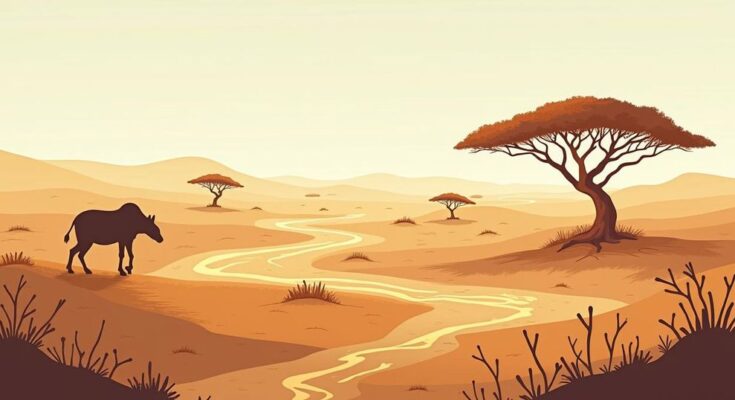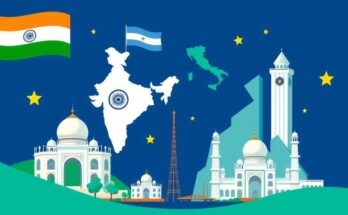The 2023/2024 El Niño event has triggered an unprecedented drought in Southern Africa, affecting millions with severe food insecurity and health crises. Almost 23 million people are in need of urgent humanitarian assistance, particularly in countries like Malawi, Zambia, Zimbabwe, and Mozambique. The region struggles with low agricultural yields, high levels of malnutrition amongst children, and compromised health systems due to ongoing cholera outbreaks and other medical emergencies.
The southern region of Africa is currently facing a catastrophic drought, primarily induced by the 2023/2024 El Niño event, marking it as the most intense such occurrence in the last four decades. Characterized by a delayed onset of rain, prolonged dry spells, and excessive heat, this drought has wreaked havoc on communities already burdened with food insecurity due to prior crop failures and adverse economic conditions. Estimates highlight that nearly 23 million individuals are currently grappling with severe food insecurity, with nations such as Malawi, Zambia, Zimbabwe, and Mozambique bearing the brunt of the crisis. It is anticipated that between 14.0 and 14.9 million people will require urgent humanitarian assistance between October and December 2024, underscoring the urgent need for intervention. In the six countries—Botswana, Lesotho, Malawi, Namibia, Zambia, and Zimbabwe—national drought disasters have been declared, while Angola and Mozambique have also seen significant impacts with approximately 1.8 million and 3.3 million people respectively facing food insecurity. The overall agricultural output has plummeted, with maize harvests recorded well below the five-year average. Compounding the crisis is the alarming statistic that over 2 million children are expected to suffer from acute malnutrition in 2024, with more than 500,000 experiencing severe wasting. These extreme weather conditions have led to the displacement of thousands, with many people lacking access to clean water, which is crucial for maintaining hygiene and sanitation. The region’s health systems are under severe strain due to simultaneous challenges such as cholera outbreaks, mental health issues, and increased risks associated with HIV and AIDS transmission, requiring intensified preparedness and response mechanisms. Even as the cholera epidemic has somewhat stabilized, the ongoing drought continues to hamper effective responses and allocation of resources, exacerbating the vulnerability of affected populations.
Understanding the ongoing drought in Southern Africa requires a look into the recent El Niño phenomenon, which is known to influence weather patterns significantly. The current drought, considered the worst in 40 years, has resulted in widespread agricultural failure, particularly impacting maize production, which is a staple food in the region. The compounding effects of climate change, economic instability, and previous health crises, such as cholera outbreaks, create a public health landscape fraught with challenges, necessitating a multifaceted response to mitigate the impact of this crisis on vulnerable populations.
In summary, the drought conditions induced by the 2023/2024 El Niño event have led to a dire humanitarian situation across Southern Africa, with millions facing food insecurity and challenges in accessing essential health services. Without a comprehensive and coordinated response, the health and well-being of affected communities will continue to deteriorate. Urgent humanitarian assistance and enhanced public health strategies are essential to address the multifaceted impacts of the drought and related crises.
Original Source: reliefweb.int




